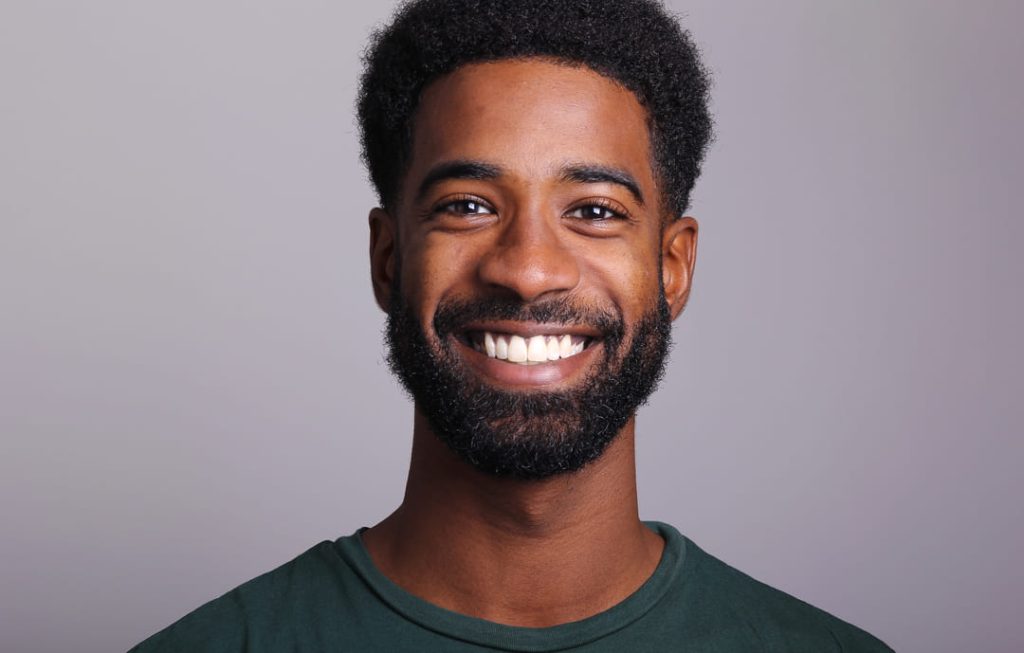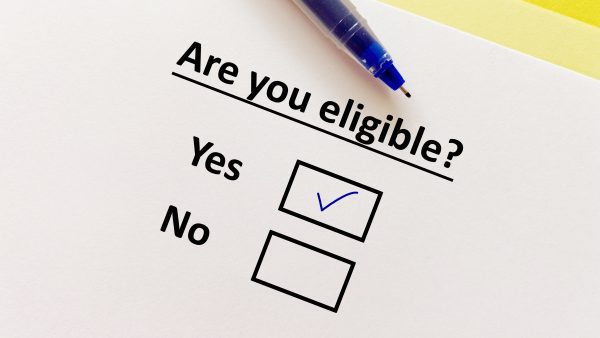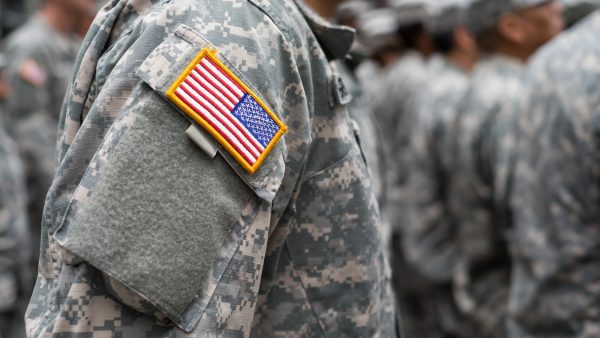Looking for Expert-Level VA Claim Answers?📱Call Us Now! 737-295-2226
The information and tips provided in this guide should help you get your other than honorable discharge VA benefits.
With an estimated 500,000 veterans living with other than honorable discharges (OTH discharge), we’re here to tell you that if you’re having trouble accessing VA benefits, you aren’t alone!
Table of Contents

Being discharged from the military can be a difficult transition for any service member. For those with other than honorable discharge, the process can be even more challenging. In addition to adjusting to civilian life, OTH veterans must also contend with the many stigma and barriers of an OTH discharge.
The VA provides eligible veterans with a wide range of services and benefits, including VA healthcare, disability compensation, education benefits, and more. OTH discharge benefits are granted on a case-by-case basis.
This guide will also help you learn what benefits you are eligible for and how to upgrade your discharge to become eligible for additional VA benefits.

Deserve a Higher VA Rating?
Book a no-obligation VA Claim Discovery Call with an experienced team member. We’ll review your situation, spot what the VA may have missed, and help you map out a strategy to unlock the VA disability rating and tax-free compensation you’ve earned for your service. Click the red button below to book your call.
1. What is an Other Than Honorable discharge?
Any veteran who has served in the military can be given an Other Than Honorable discharge. Within the military, there are two types of discharges veterans can receive—an administrative or a punitive discharge. Administrative discharges include:
- Honorable discharge
- General discharge
- Other than honorable (OTH) discharge
Of the three types of discharges in this category, an OTH discharge is the least desirable.
An OTH discharge is often reserved for those who have committed serious offenses or violations while serving in the military. Most of the time, an OTH discharge is given to veterans as a punishment as part of the Uniform Code of Military Justice.
However, just because you have an OTH discharge doesn’t mean you’re ineligible for all VA benefits. By law, specific reasons surrounding your discharge prevent you from accessing VA healthcare and VA disability benefits. Let’s look at the criteria the VA considers when making this decision.
2. How can you qualify for VA disability benefits with an OTH discharge?
When you apply for VA benefits, the VA will review your record to determine if your service was “honorable for VA purposes.” Unfortunately, this review can take up to a year.
The VA looks at the type of your service, how long you served, and the character of your discharge.
With OTH discharge benefits, the VA will look at your records to determine your eligibility for VA benefits.
If you were discharged under any of these conditions, your OTH discharge bars you from accessing VA benefits by law under 38 USC § 5303:
- General court-martial
- Accepting an undesirable discharge to avoid general court-martial
- A conscientious objector
- Desertion
- Resignation by an officer for the good of the service
- AWOL for 180 days or more
- Requesting release from services during wartime
- Spying
- Felony conviction
Note: The only exceptions to this rule are that if you can prove you were “insane” when committing the act, you may still be eligible for VA healthcare.

3. How to Get Other Than Honorable Discharge VA Benefits
Veterans have sacrificed a lot for their country and deserve our support. Unfortunately, veterans aren’t automatically eligible for many VA benefits with an other than honorable discharge.
To be granted access the VA benefits, the VA must find that your discharge was “under conditions other than dishonorable.” The VA reviews the facts and circumstances that led to the discharge to make a character of discharge determination. However, this review will only happen if you file a claim for VA benefits. This could include filing a claim for treatment at a VA medical facility or a VA disability claim.
You can include your own evidence in this review or evidence from a third party, not merely your military records. You should receive a letter from the VA asking you to submit evidence to support your case. You can also request a local, regional VA office hearing to present evidence.
Since the review can take so long, filing your VA claim as soon as possible is essential to get the care you deserve.
After the character of service determination, the VA will either come back to you with a favorable or unfavorable decision. If the VA has determined that your service characterization was not dishonorable, you are eligible for several VA benefits.
VA Healthcare Benefits for Veterans with an OTH Discharge
After the VA reviews and approves your characterization, you may qualify for VA healthcare. These benefits include:
- Primary care services
- Mental health services
- Substance abuse treatment
- Specialized care for women veterans
- Geriatrics and extended care
- Rehabilitation services
- Veterans’ benefits and services
While your application is being reviewed for eligibility, you can be treated for the following:
- A service-connected disability that’s already VA rated
- Anything related to sexual assault or harassment from your time in service
- Emergency mental health issues
- Mental health issues (more on this later)
VA Home Loan Benefits for Veterans with an OTH Discharge
If you meet specific requirements and the VA finds you were discharged under conditions other than dishonorable, you may qualify for an other-than-honorable discharge VA loan.
With a VA-backed loan, you may qualify for benefits like no down payment or lower mortgage insurance premiums. A private lender provides your loan, but the VA guarantees a portion of it.
If you’re found ineligible, the VA will issue you an FHA Certificate of Veteran Status concurrent with the VA’s notice of denial of eligibility for the VA program. The FHA loan program is similar to the VA loan program in many respects as a government-backed mortgage loan program. An FHA loan could be another option to consider when researching home loans.
VA Life Insurance Benefits for Veterans with an OTH Discharge
Generally, as long as you didn’t receive a dishonorable discharge, most veterans qualify for Veterans Life Insurance. There are different types of life insurance available, and the requirements differ. Still, as a veteran with an OTH discharge, you could qualify for one of these types of life insurance:
- Service-Disabled Veterans Insurance (S-DVI)
- Veterans’ Group Life Insurance (VGLI)
- Veteran’s Mortgage Life Insurance
VA Burial Benefits for Veterans with an OTH Discharge
Other than honorable discharge VA benefits also include burial benefits once the VA reviews your discharge characterization.
There are a few types of burial benefits available through the VA:
- Veteran burial in a national cemetery
- A VA-provided headstone or marker for the grave of a veteran
- A VA-provided presidential memorial certificate
Other Than Honorable Discharge Burial Benefits
You may also be eligible for burial allowances. Learn more about burial benefits through the VA here.
4. Service-Connected Conditions May Be Covered for Treatment Even if You’re Ineligible for VA Healthcare Benefits
If you don’t meet any of the barring criteria listed above, your VA benefits include treatment for any service-connected disability at a VA treatment facility.
You’ll want to make sure that you provide evidence to the VA that your VA claim is service-connected to ensure you get healthcare benefits for your condition. Service-connected means that your disability either developed during or was aggravated during active duty. This means it was directly caused by military service, occurred while serving in the military (but not necessarily on duty), was made worse by military service, or was caused by service-connected conditions.
Other than honorable discharge VA benefits are also extended to eligible veterans for mental health care through recent changes to VA law.

5. Other Than Honorable Discharge VA Benefits Now Include Mental Health Care
You could be eligible for mental health services if you were on active duty for more than 100 days and served in a combat role. You could also be eligible for mental health services if you experienced sexual harassment or sexual assault while serving.
A law passed in 2018 offers VA mental health and behavioral health care for struggling veterans. Veterans with an OTH discharge are more likely to encounter mental health issues, and the VA is now taking action. You can call or visit a VA medical center or a Vet Center near you to get the help you earned. All you have to do is tell them you’re a veteran with an OTH discharge and you’re looking for mental health care.
6. How to Request a VA Discharge Upgrade
You may be interested in changing the characterization of your service, especially if you believe you were discharged under the wrong characterization. With an upgrade request, your characterization could be changed to an honorable or general discharge. Both of these characterizations would greatly expand your options regarding VA benefits.
While VA Claims Insider can’t assist veterans with a discharge upgrade, you can apply to change your military discharge status by answering a VA questionnaire online. The questionnaire will tell you precisely what to do to apply for an upgrade based on your unique circumstances.
The following reasons may result in a discharge upgrade for all military branches:
- Mental health conditions, including Post Traumatic Stress Disorder (PTSD)
- Traumatic Brain Injury (TBI)
- Military Sexual Trauma (MST)
- Sexual orientation (including Transgender and discharge under the military’s previous Don’t Ask, Don’t Tell policy).
However, even if you don’t meet the criteria listed above, you can still apply for a VA discharge upgrade. If your first attempt to get discharged from the military doesn’t work, don’t give up. You may have additional evidence or new rules you didn’t have when you last applied.
You can also apply to the Discharge Appeal Review Board as a last resort after exhausting all other methods of seeking an upgrade through your specific branch of service.
While there’s no guarantee the board will upgrade your discharge, it’s important to remember that you aren’t alone in this process. Though it may seem daunting, don’t give up hope.
There are many resources available to help you get the other than honorable discharge VA benefits you deserve.
NEED MORE ASSISTANCE?
Most veterans are underrated for their disabilities and, therefore, not getting their due compensation. At VA Claims Insider, we help you understand and take control of the claims process, so you can get the rating and compensation you’re owed by law.
Our process takes the guesswork out of filing a VA disability claim and supports you every step of the way in building a fully-developed claim (FDC). If you’ve filed your VA disability claim and have been denied or have received a low rating—or you’re unsure how to get started—reach out to us! Take advantage of a VA Claim Discovery Call. Learn what you’ve been missing—so you can FINALLY get the disability rating and compensation YOU DESERVE!

Trisha Penrod
Trisha Penrod is a former active-duty Air Force officer. As an Intelligence Officer, she led teams of analysts to apply advanced analytic skills to identify, assess, and report potential threats to U.S. forces.
Trisha attended the U.S. Air Force Academy and holds an MBA from Webster University. After receiving an honorable discharge in 2018, Trisha worked as a growth marketer and utilizes her analytic skills to help others accomplish their business goals.



